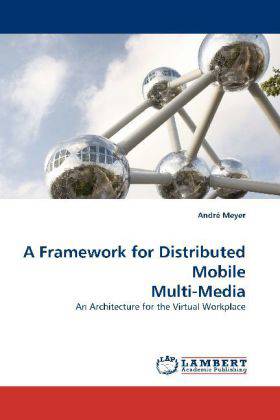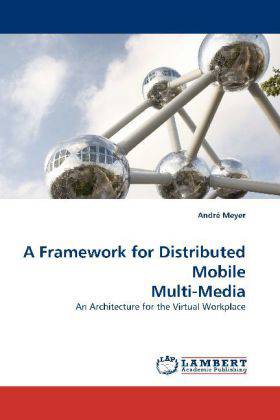
- Afhalen na 1 uur in een winkel met voorraad
- Gratis thuislevering in België vanaf € 30
- Ruim aanbod met 7 miljoen producten
- Afhalen na 1 uur in een winkel met voorraad
- Gratis thuislevering in België vanaf € 30
- Ruim aanbod met 7 miljoen producten
Zoeken
A Framework for Distributed Mobile Multi-Media
An Architecture for the Virtual Workplace
André Meyer
Paperback | Engels
€ 67,45
+ 134 punten
Omschrijving
The trends towards increased mobility and global business connections force workers and managers alike to communicate faster using multiple new types of media. At the same time, the means of communication must become easier to use and more secure, because the statically localized workplace of today will dissolve in the near future into a distributed and highly mobile multi-media communication platform. As the need for - or the freedom of - mobility as part of altering life styles becomes more and more commonplace, new tools are required that support these new forms of life and work, also called Virtual Workplaces. A virtual workplace is a distributed wireless multi-media system that is aimed at mobile individuals and supports the organization of people working together in groups for a number of projects. In the combined employment of sophisticated mobile and agent technologies, virtual workplace scenarios leap far beyond the current state of research in the so-called field of Computer Supported Cooperative Work.
Specificaties
Betrokkenen
- Auteur(s):
- Uitgeverij:
Inhoud
- Aantal bladzijden:
- 180
- Taal:
- Engels
Eigenschappen
- Productcode (EAN):
- 9783838304083
- Verschijningsdatum:
- 25/06/2009
- Uitvoering:
- Paperback
- Afmetingen:
- 152 mm x 220 mm
- Gewicht:
- 272 g

Alleen bij Standaard Boekhandel
+ 134 punten op je klantenkaart van Standaard Boekhandel
Beoordelingen
We publiceren alleen reviews die voldoen aan de voorwaarden voor reviews. Bekijk onze voorwaarden voor reviews.







